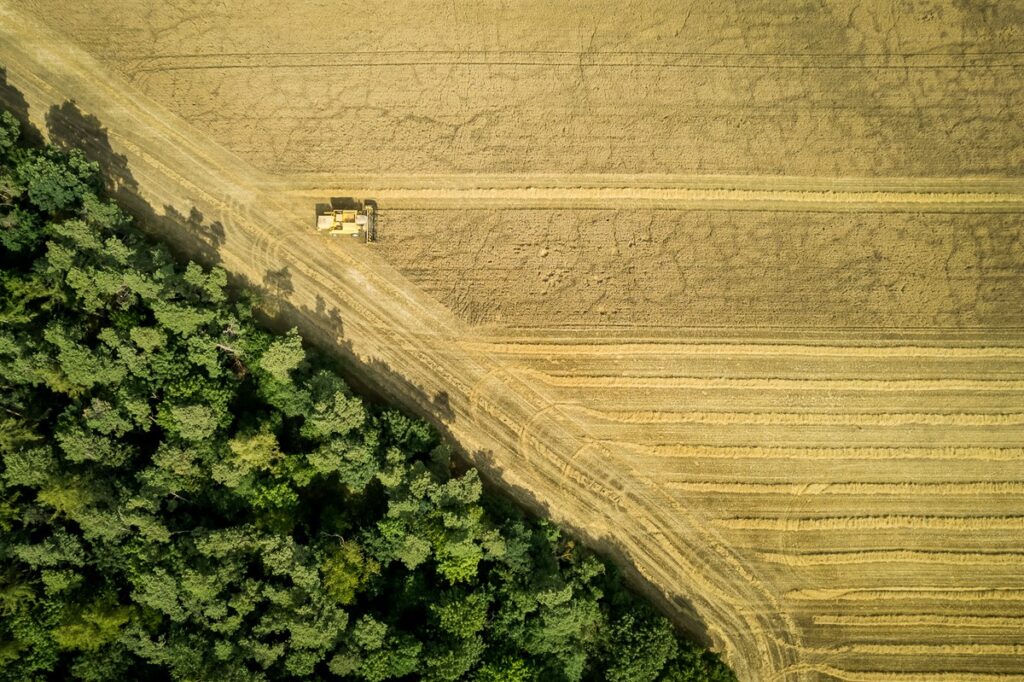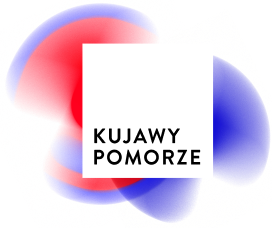
Summaries 2024: countryside and agriculture (in everyone’s interest)
Agriculture is an important branch of the economy in our region, generating a significant part of our GDP and having a significant impact on the social situation. Based on the assumption that farmers’ incomes should be decent, and that choosing the countryside as a place to work and live cannot be associated with accepting poorer living conditions, the regional government supports the modernisation and construction of rural infrastructure – including that for farming and breeding – as well as soft social projects integrating local communities.
Land reclamation and roads
The regional government has funds from the Fund for the Protection of Agricultural Land (FOGR), which is created from fees for excluding fields and meadows from agricultural production. This is money that we can use every year to invest in modernising farmland access roads throughout the region – the part of the road infrastructure that we cannot finance with other funds. Last year, we provided PLN 12 million to local communities in this way, for which 42 such projects were carried out. We are turning dirt roads, which are often impassable in bad weather conditions, into paved roads in this way, which makes farmers’ work easier and improves farming efficiency.
A total of 30 kilometres of roads were modernised in this way last year, including in the commune of Fabianki in the district of Włocławek and in the commune of Bobrowniki in the district of Lipno.
Expenditure from the voivodeship budget on the construction of retention reservoirs for agriculture (with a total water surface area of 1 hectare) amounted to PLN 150,000, while we transferred PLN 1,700,000 to the local entities responsible for maintaining drainage facilities in good condition. New retention reservoirs were built, among others, in Lipnica and Blizno in the Wąbrzeźno district, and we distributed the money for the maintenance of the facilities to 72 municipalities across the region.
Promotion of the countryside and agriculture
Support for rural communities also means budget allocations for initiatives and events that integrate local communities and promote the image of the countryside as an attractive place for living, self-fulfilment and fulfilling professional ambitions, including tourism.
One such event is the annual provincial harvest festival, which last year cost us PLN 850,000. The programme, apart from the traditional ceremonies, included competitions with prizes for the most beautiful wreaths, the most imaginative greeting cards and the most interesting promotional ideas of the county offices.
Last year’s total of PLN 150,000 was spent by the Marshall’s Office on initiatives carried out by rural housewives’ circles – programmes for rural community centres, folklore reviews, festivals, conferences and artistic events. The Agricola Son of the Earth competition, which recognises the best farmers who produce food to exacting standards, had a budget of the same amount. The competition promotes both farming using the most modern methods of cultivation and breeding and that which is traditional, producing less but in a responsible and sustainable way.
Marshal’s civic budget for villages
The Kujawsko-Pomorskie countryside itself manages part of the funds allocated to it under the community-led local development mechanism (RLKS), financed from the envelope of our regional programme European Funds for Kujawsko-Pomorskie (EFKP) and the Strategic Plan of the Common Agricultural Policy (PSWPR). These funds – a total of EUR 100 million in the perspective until 2027 – are managed by local partnerships (Local Action Groups, LAGs), of which there are 27 in our region.
At the Marshal’s Office we have been working over the past year to mobilise these funds through funding competitions announced by individual LAGs for entities operating in their areas. Some of those competitions have already been launched, two have already been decided.
The latter concern funds earmarked, inter alia, for the development of youth clubs with educational and formative programmes (to be launched in each commune) and social integration of seniors. In the former case, PLN 9.5 million was divided among 115 beneficiaries, while in the latter, PLN 11 million will go to 128 local entities. Ongoing competitions include money earmarked for combating gender stereotypes and promoting women’s activity (3 active calls) and for lifelong education (one call).
Also up for grabs will be money for rural business and rural social enterprises to build alternative ways of earning money for farms (agri-tourism, education and care services), to support the construction of systems for short food distribution chains, to develop local infrastructure and social service networks, for civic education and social inclusion projects.
RDP in the final straight
Last year was the time for the final competitions in our regional segment of the 2014-2020 Rural Development Programme (RDP is being implemented across the country with slippage independent of the regions). We contracted PLN 681 million, 100 per cent of the allocated allocation, under 2.5 thousand funding agreements.
Last year’s RDP achievements include:
- 9 km of new water supply systems
- 8 km of new sewage systems
- 159 new household sewage treatment plants
- 2 new municipal sewage treatment plants
- 2 water treatment plants (one new and one modernised)
- 24 km of modernised local roads
- investments in 19 cultural facilities (e.g. community centres and libraries)
- 149 investments in public space (e.g. sports fields, playgrounds, parks, tourist infrastructure)
- 247 new companies
- 296 new jobs.
Funded investments include, for example, an angling station on Lake Pakoskie in the Inowrocław district, new heating systems in five village day-care centres in the Sępólno Krajeńskie municipality in the Sępólno district, the extension of a playground in Zakrzewo in the Aleksandrów district and the construction of small recreational architecture in Choceń in the Włocławek district.
Our Local: the success of good food
For the past four years, the Marshal’s Regional Centre for Sustainable Development has been running the Nasze Lokalne (naszelokalne.pl) online shop, where you can buy food products straight from farmers and small local processors. There are now nearly 600 items on offer, including cheeses, cured meats, fish, fruit and vegetable preserves and baked goods.
The Our Local service is the practical implementation of the idea of strengthening and promoting local food systems and short food distribution chains, the idea of sustainable agriculture and the principle to produce healthy food of the highest quality. It also works towards decent incomes for farmers and improved living standards in the countryside. It has succeeded by selling only the highest quality fresh produce, without artificial admixtures or preservatives.
Our Local 2024
- 50 new products
- 24 suppliers/producers
- 9 “shopping windows”
- hundreds of products sold
In the interest of the countryside (but also the city)
An undoubted success for the region is the adoption by the European Committee of the Regions, an important EU advisory body, of an opinion prepared by Marshal Piotr Całbecki on the principles of the EU’s common agricultural policy after 2027. The document is important for the European debate on this issue and for the future of Polish and European agriculture. In it, the European regions call on the European Commission to verify the Common Agricultural Policy – inter alia, to implement instruments to strictly control the transit of agricultural products from outside the European Union and, in general, to adequately protect the European common agri-food market; to verify the assumptions of the European Green Deal with regard to agriculture; to establish tools to support the development of sustainable agriculture and healthy food production, to strengthen and promote local food systems and short food distribution chains; to transfer essential competences in creating agricultural policy to the level of voivodeships.
The opinion was the opening of the European debate on the future of our continent’s agriculture. It was an effective opening – its theses were widely reflected in the EU institutions and currently resound in the statements of the highest officials in Brussels, including the President of the European Commission, Ursula von der Leyen, and the EU Commissioner for Agriculture, Christophe Hansen. It is therefore to be hoped that the tools and solutions proposed therein will be incorporated into the principles of the new European Common Agricultural Policy.
If this happens, the farmers of our region will be among the winners. And all of us.
Beata Krzemińska
Spokesperson of the Marshal’s Office
14 May 2025.


